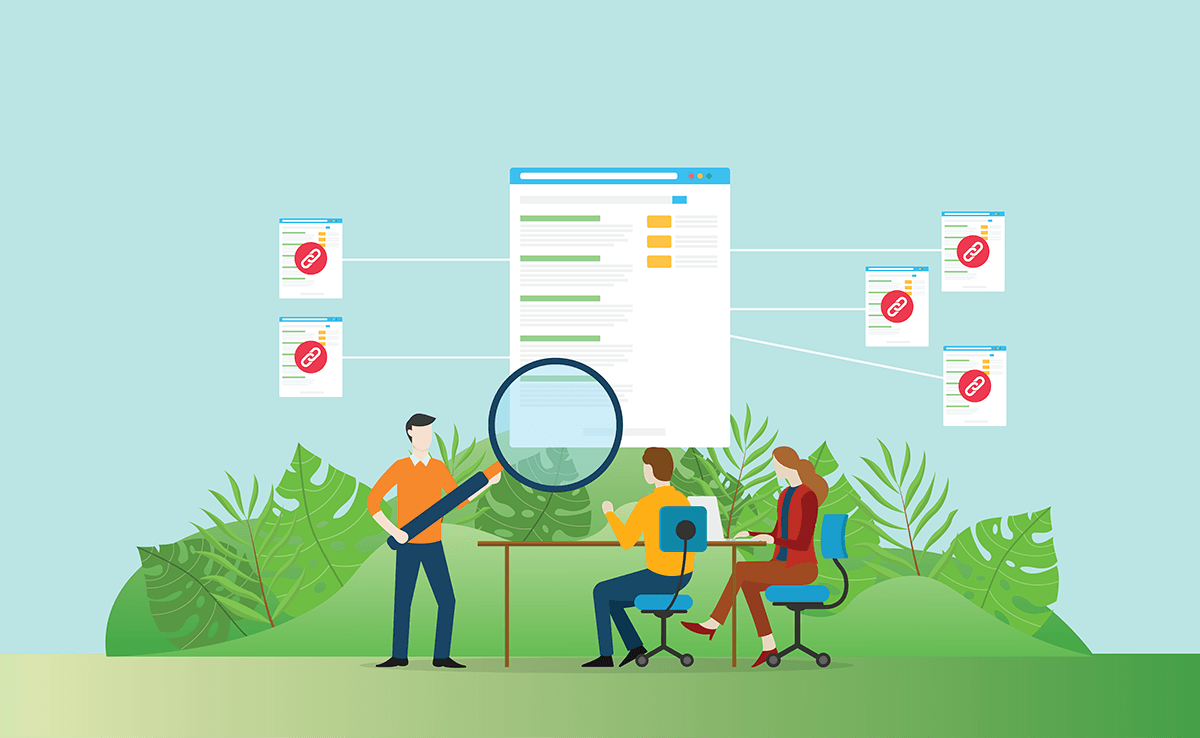Learn why your blog posts needs links to thrive online.
Why Blog Posts Need Links
Links are essential to effective blog posts.
Yet, even if you recognize you need them, you might not know why exactly – or even when and where to use them.
Not to worry. In this post, we will cover the reasons why blog posts need links, and then talk about various areas where you could apply links within blog content.
But first, let’s define the role of links.
How do links actually work?
Links in blog posts help readers and search engines. (Source)
Links are simply a way of connecting you from one website page to another. When you assign a link to a word or phrase or image, you make it possible for a user to click through to another piece of content, which could be another website page, document, image, or video.
You can place internal links, which link to another page on your own website, and you can place external links, which link to pages on a website other than your own. It’s a good idea to have a mix of both in your content.
Why Links in Blog Posts are Important
Placing links in your blog posts, or what we like to call link building, is essential to the content writing process. This is true for several reasons:
SEO: Links help search engines understand how website pages are related to each other, so they can analyze the importance of your pages. According to Google, links are the number one search ranking factor alongside content, so you definitely don’t want to push them aside. Links can also pass higher search engine rankings from one page to another, if the linking page ranks well.
Credibility: If your content includes data – like the percentage of people who don’t like coffee (does that number even exist?) or how much time kids spend on social media – you want to provide links to your sources.
Helpful: Sometimes, your readers will want to learn more about an idea or topic you mention in your blog post. This is why blog posts need links, because they help readers learn more if they choose, and that positions you as knowledgeable – even if the content you link to doesn’t happen to be your own.
How to Use Links in Blogs
Now that you understand why it’s important to use links in your blogs, it’s probably becoming clear where you should place them within the content.
Here are a few ideas to get you going:
Data: Again, anytime you include some type of data like a statistic or claim, be sure to link it back to your source. This helps support what you are saying in your post, and makes it look like you did your research – in turn, giving your content more credibility.
Credit: If you use an image that doesn’t belong to you, be sure to link back to the source of the image (and make sure you’re allowed to use the image). If you refer to studies or surveys in your blog post, give credit where credit is due.
Details: If you write a blog post about marketing, and it includes marketing terms your readers might not understand, you can be helpful to them by linking those terms to definitions – either on your own site or another one.
More information: It’s always a good idea to provide further reading for your audience. You can link them to other content that’s related to what you wrote, or if you’re aiming for conversion, you can link them to a product or service on your website – if it makes sense for the page.
